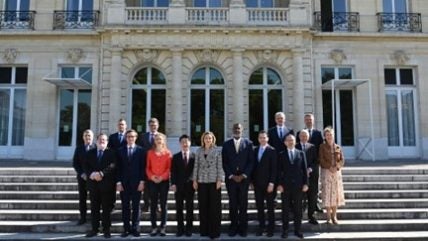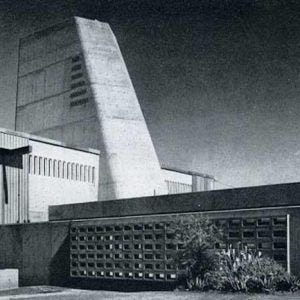
The OECD Nuclear Energy Agency (NEA) is to create a new Joint Undertaking on Roadmaps to New Nuclear to bring together like-minded countries to rebuild their capability to implement successful nuclear energy new build projects. To date 13 countries have expressed interest in the initiative – Bulgaria, Canada, Czechia, France, Hungary, Japan, Korea, Poland, Romania, Slovenia, Sweden, the UK, and the US. The initiative will focus on addressing the pressing issues such as nuclear finance, supply chain readiness and building a skilled and diverse workforce.
“The Joint Undertaking on Roadmaps to New Nuclear will allow us to turn the priorities identified by Ministers and CEOs into practical actions to support the tripling of nuclear energy capacity by 2050,” said NEA Director-General William D Magwood, IV. “This collaborative framework will advance international co-operation, foster strategic partnerships, and exchanges among governments and industry to more effectively deliver on the national priorities of the countries pursuing new nuclear capacity.”
Ten industry associations have issued a communiqué calling on all OECD member states to set out clear plans for nuclear energy deployment. The communique was released during the first day of the second Roadmaps to New Nuclear conference in Paris, organised by the NEA. This event followed the success of Roadmaps to New Nuclear 2023, NEA noted.
The communique was signed by the Canadian Nuclear Association, Candu Owners Group, the Electric Power Research Institute, Groupement des Industriels Français de l’Energie Nucléaire (Gifen), Japan Atomic Industrial Forum, Korea Atomic Industrial Forum, Nuclear Energy Institute, nucleareurope, Nuclear Industry Association and World Nuclear Association.
“We congratulate those OECD member states that signed the Declaration to Triple Nuclear at COP28. We urge all OECD member states to set out clear plans for nuclear energy deployment that would fulfil the targets they have set through the UNFCCC process and to demonstrate their commitment to nuclear energy, giving clear signals to markets and investors.”
The associations said they recognise that meeting a tripling of nuclear capacity by “2050 will require significant expansion in access to financing, strengthening of supply chains, investment in workforce, further development of the nuclear fuel supply and supportive policies and regulations to enable rapid scaling of nuclear energy generation”.
They called on governments to help maximise the use of existing nuclear power plants, including extending the operating period of reactors, uprating their output and restarting those that have shutdown where feasible. They said governments should act to accelerate deployment of new nuclear facilities based on proven designs, and accelerate the development, demonstration, and deployment of new nuclear technologies, including new large nuclear reactors as well as small modular reactors and advanced modular reactors.
The associations highlighted eight key areas which required governments to take action to achieve the 2050 target. These include:
- promoting policies to encourage fleet deployment of nuclear energy technologies;
- ensuring ready access to national and international climate finance mechanisms for nuclear development;
- ensuring that multilateral financial institutions include nuclear energy in their investment portfolios;
- providing clarity to investors on the funding and investment recovery mechanisms available for nuclear projects and including nuclear energy in clean energy financing mechanisms;
- continuing efforts to strengthen supply chains for nuclear fuel in OECD member states;
- investing in workforce development and training;
- continuing investments in nuclear research and efforts to bolster the nuclear supply chain within OECD member states; and
- expanding regulatory cooperation.
Researched and written by Judith Perera






